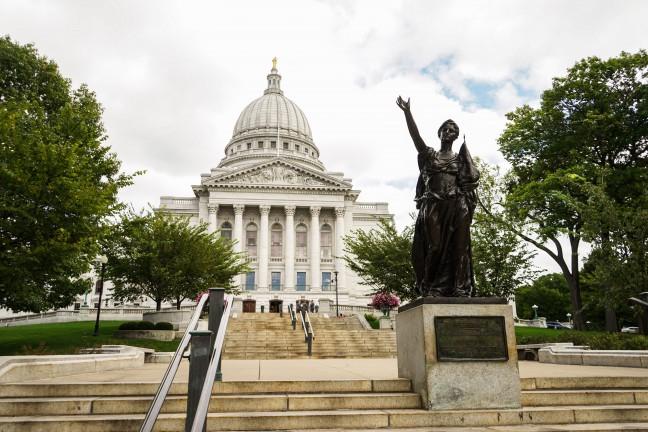The opening sequence of Hitchhiker’s Guide to the Galaxy shows Martin Freeman’s character having a difficult time accessing a public document with information about building a highway through his living room.
The Wisconsin Transparency Project hopes to combat these forms of roadblocks faced by everyone from journalists and corporations to universities and everyday citizens. The project was launched by a former attorney of the Wisconsin Institute of Law and Liberty, Tom Kamenick, who hopes his efforts will make this law more enforceable.
While the history of American citizens wanting to view public documents may have begun in the 1800s, the Freedom of Information Act was written in 1966 under President Lyndon B. Johnson to make the government more transparent. In the wake of government accusations and firings over the threat of communism, any request to see evidence was denied and senators decided to make a law requiring transparency.
Point Counterpoint: Accountability vital when faced with lawlessness
U.S. Sen. John Moss, D-California said, “The present trend toward government secrecy could end in a dictatorship. The more information that is made available, the greater will be the nation’s security.”
In Wisconsin, the Open Records Act was enacted in 1982 and specified the public has access to information about the government at all levels. There are some off-limits documents, such as social security numbers and documents that would threaten national security, but Kamenick said those wishing to view these documents still face other issues.
Often, the law itself is violated or poorly enforced, sometimes by delaying access, demanding search terms and denying records for invalid reasons. This prevents many people from viewing documents they are legally allowed to obtain.
The custodians of these documents have avoided complying with requests, which Kamenick is working to resolve. If Kamenick’s efforts are successful, the law in place won’t just be an ideal way our government is supposed to function, but also a better reality where the people have a check on government power.
The importance of this law and Kamenick’s efforts cannot be overstated. America has had a number of scandals throughout its history, and after the enactment of this law, several more were uncovered. Some of the most concerning include FBI surveillance of many African-American writers for five decades starting in 1919 and the U.S. narrowly avoiding detonation of a hydrogen bomb over North Carolina in 1961.
More recently, Gov. Tony Evers has received criticism for its inability to efficiently respond to records requests. One-third of such requests were either improperly recorded or unfilled. While Evers is already on the receiving end of bipartisan criticism regarding issues such as the budget, it is important to remember the freedom of information should not be up for partisan debate.
“Wisconsin Freedom of Information Council president Bill Lueders said the Evers administration announced it will not be following many executive orders enacted by Walker, many of which expedited the process of obtaining records from government officials,” according to reporting by The Badger Herald.
While Lueders said the administration is doing fine in responding to requests, it is essential they strive to do better.
“For a democracy to work, government must be accountable to the people,” the Wisconsin Transparency Project’s mission statement says. “Accountability requires transparency. Transparency requires commitment.”
After historical incidents such as Watergate, the American public was especially outraged at lack of government transparency and accountability. Kamenick is doing sincere work to hold our government to that high standard.
Ashley Petersen (apetersen@wisc.edu) is a junior studying communications.


